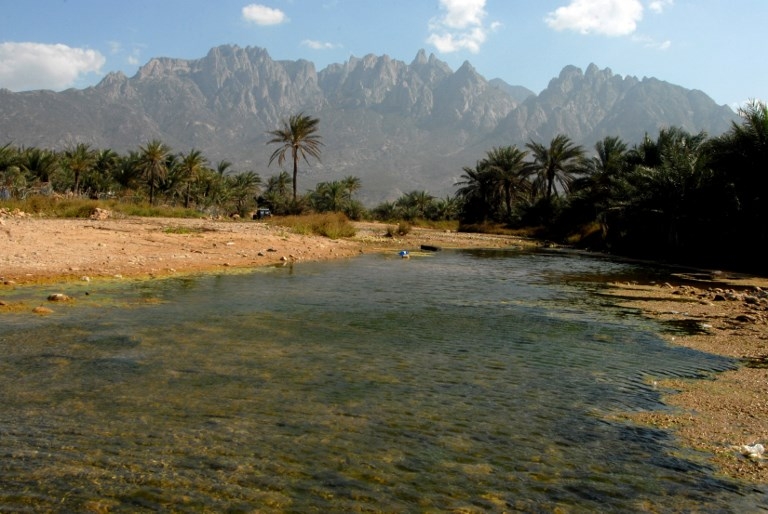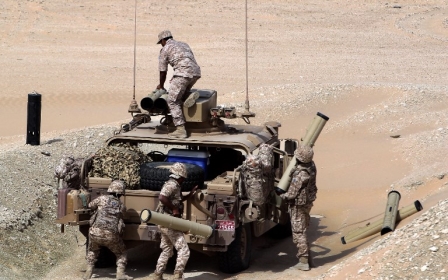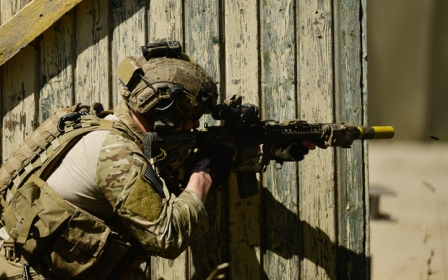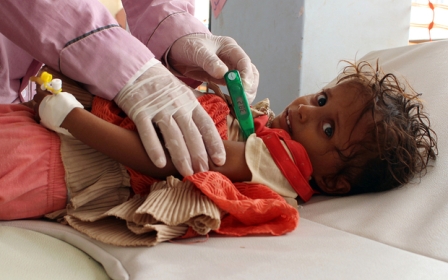UAE says its military presence on Yemen's Socotra island 'distorted'

The United Arab Emirates, facing criticism from top Yemeni allies over its presence on the island of Socotra, said on Sunday that its role on the strategic Yemeni territory had been "distorted".
The UAE played a key part of the Saudi-led coalition in Yemen, which launched in 2015 to roll back Houthi rebel gains and restore the internationally recognised government to power.
Still, splits have emerged in the pro-government camp.
In January, the government's de facto capital of Aden was rocked by deadly clashes that saw UAE-backed forces seize much of the city from other pro-government forces.
The Yemeni government said military coordination with the UAE has been “absent” and asked Saudi Arabia to intervene with the UAE to help rectify the situation in Socotra, Bloomberg reported.
On Friday, a Saudi delegation travelled to Socotra to defuse new tensions on the island after the UAE deployed forces without informing the government of President Abd Rabbuh Mansour Hadi.
The delegation met with Yemeni Prime Minister Ahmed bin Dagher in the presence of an Emirati official, Yemen's Saba news agency reported.
Still, Bin Dagher took to social media on Sunday to question the UAE military presence he witnessed during an official visit to Socotra.
"On [April 30]... the first Emirati military aircraft arrived carrying two armoured vehicles and more than 50 Emirati soldiers, followed immediately by two other aircraft carrying tanks and armoured vehicles and soldiers," Bin Dagher said in a statement published to Facebook.
"This raised a number of questions, and left the island in a state of anxiety."
Socotra, which has been spared the violence that has ravaged mainland Yemen, sits at the exit of a bustling shipping lane that leads from the Mediterranean Sea to the Indian Ocean.
The Socotra archipelago of four islands and two islets was listed by UNESCO in 2008 as a world heritage site because of its rich and distinct flora and fauna, much of which can’t be found anywhere else on the planet, Bloomberg reported.
Like Aden, it become a flashpoint of contention in the anti-Houthi camp.
"The continuing disagreement and its spread to all the liberated provinces down to Socotra, is clearly harmful... and something that can no longer be hidden, and its impact has spread to all military and civil institutions," Bin Dagher said.
"Correcting this situation is everyone's responsibility."
The UAE foreign ministry said it was "surprised" by the Yemeni prime minister's statement and blamed the Muslim Brotherhood for drumming up anti-Emirati sentiment over Socotra.
"These malicious campaigns, which are led by the Muslim Brotherhood... are part of a long and repeated series of attempts to distort the role of the UAE," it said, adding: "The UAE military presence in all liberated Yemeni provinces, including Socotra, comes within the efforts of the Arab Coalition to support legitimate government at this critical stage in the history of Yemen."
The UAE's state minister for foreign affairs, Anwar Gargash, highlighted in a tweet on Friday the "historic links" between his country and Socotra.
"We have historic and family links with the residents of Socotra and we will back them during Yemen's ordeal which was sparked by the Houthis," he said.
The Yemen war has claimed nearly 10,000 lives since Riyadh and its allies joined the conflict in March 2015, triggering what the United Nations has called the world's worst humanitarian crisis.
New MEE newsletter: Jerusalem Dispatch
Sign up to get the latest insights and analysis on Israel-Palestine, alongside Turkey Unpacked and other MEE newsletters
Middle East Eye delivers independent and unrivalled coverage and analysis of the Middle East, North Africa and beyond. To learn more about republishing this content and the associated fees, please fill out this form. More about MEE can be found here.




